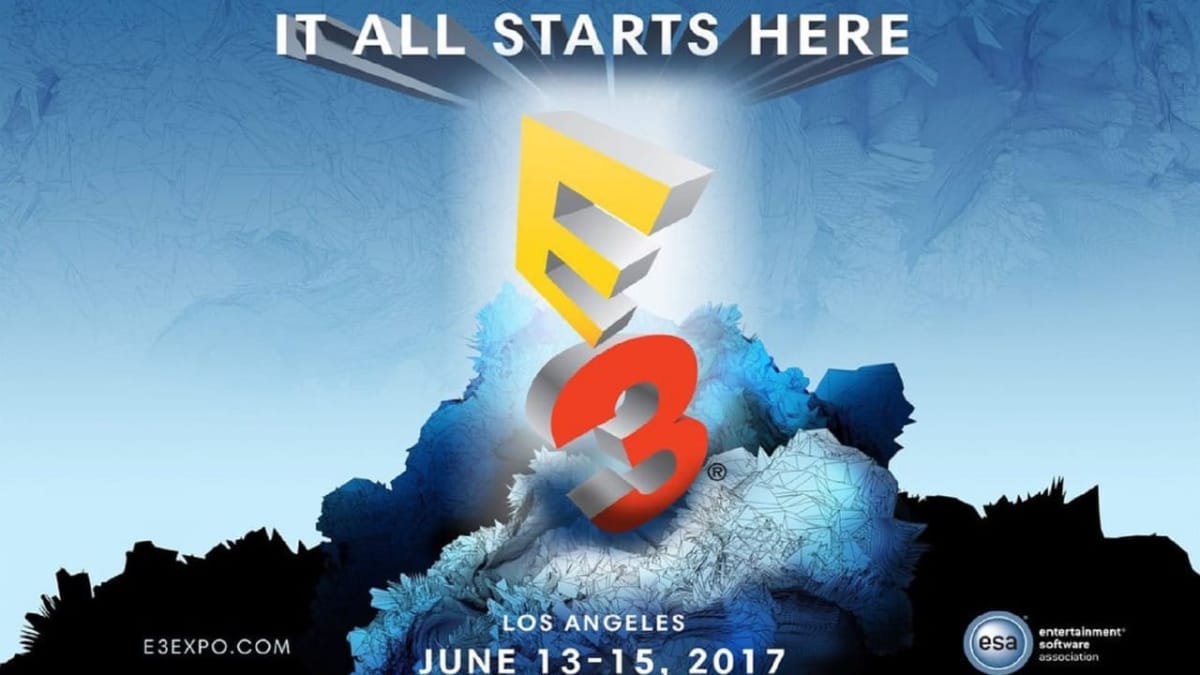Every year, like clockwork, some of the gaming industry's best and most talented developers and publishers meet each other under one roof in an attempt to show off their latest and greatest products, putting on a spectacle that can best be described as the ultimate peacock show for gamers. Among the usual cadre of company figureheads and charmingly awkward programmers that every company sends are figures that can best be described as No Man's Sky snake oil salespeople; people whose sole job is to get you to buy stuff that you might not want with information that might not be relevant by the time the product actually comes out. While they are a creative bunch, such people have, perhaps unfortunately, chosen to put their considerable skills to use by making sure that their company's E3 presentation is as attractive to impulse buyers as humanly possible.
Fortunately, there's only so many ways that you can hide something behind the usual (sometimes literal) song and dance routine, especially when everyone only has an hour or two in the spotlight. This E3, you may hear certain familiar phrases that may sound nice at first, but in actuality are terms that are designed to hide the fact that many of the games that you see are likely going to be drastically different from how they are presented. Such phrases may be variations of the following:
- "We listened to the community and improved"
- "An exciting step forward for the series"
- "From the developers of such and such game"
- "This is just an early build, but we're excited to show this to you"
- "A spiritual successor to"
- "Indie"
- "We admit that our previous game was about as well received as a dumpster fire"
- "We are making some drastic changes to this series' core gameplay that most die-hard fans may not like"
- "We aren't confident with this new game, so we're reminding you that you worshiped us over our last game"
- "This game is going to be released so far in the future that we actually have no idea how its going to actually play like"
- "We can't legally copy this game, but we're going to try our hardest to do so without getting sued"
- No Man's Sky

Of course, not all E3 presentations are equally as misleading nor are they all trying to sell you the same equally bad products; if they were, E3 would, in an ideal world, cease to exist due to a lack of credibility. If you are legitimately looking forward to the release of a certain game, E3 is the equivalent of being able to take a sneak peek at your Christmas present. However, it would be dangerous to assume that all E3 presentations are equally as truthful, and it may not even be the fault of a publisher or developer that some things change with seemingly little warning. Simply put, the realities of game development dictate that unless a game is coming out within a few months, it would be safe to assume that anything and everything that you see in a trailer can and will change at release. In fact, there have even been cases where an E3 presentation was essentially a 100% accurate representation of a game, but for some reason the final product was just not what most people expected.
Perhaps one of the most disappointing examples of this seemingly contradictory maxim was the Halo 5: Guardians presentation at E3 2015 and beyond. At E3, Microsoft gave a surprisingly accurate presentation of part of a level from the game, along with the usual "accurate, but unrepresentative of actual gameplay" trailers for Halo 5's multiplayer. Following this was the Hunt the Truth marketing campaign that alluded to a new, darker direction that Halo's story was going in where the Master Chief might be a traitor and its up to you to find out what really happened. Upon release. however, it appeared as though the whole "Master Chief might be a traitor" subplot was seemingly ditched halfway through development. Was the E3 presentation false or misleading? Not in itself, but it goes to show that you may as well watch E3 with the same level of skepticism as if you were to watch a prescription drug ad.
It goes without saying that any gameplay shown at E3 should be treated with the same degree of skepticism. A developer may try and say that their presentation uses footage using the game's engine, or that their trailer shows off actual gameplay, or they may even have some people play a game live on stage to show you what playing their game might be like if you had friends to play with. However, what they don't say is that while such trailers and demos may not be fake per se, such footage is often recorded under situations and scenarios that are otherwise perfect.
Gameplay trailer? Possibly recorded on a super high end PC that relatively few people would have due to the pricetag associated with such rigs, or the "gameplay" consists of scripted events in the game recorded from angles that you can't get to without the use of console commands, or it might even be (if the developer is, as one might assume, extremely lazy) just a bunch of cutscenes. For an excellent example of this, take a look at the Call of Duty: WWII trailer, which doesn't actually show any gameplay, or at least any gameplay that would help a normal person decide whether or not the game will be a fast paced mess filled with jetpacks and microtransactions.

Live demo? Notice how there is often no lag, no one ragequits or disconnects halfway through, no one acts like a troll, and everyone just happens to be equally skilled against enemies that don't appear to be actually trying (AI or otherwise). For that matter, it's amazing that their character just so happens to always be in just the right place looking at just the right direction at just the right time to see a really cool thing happen. You don't really have to look far to see examples of this, though Ubisoft does an excellent job of creating some of the most misleading live gameplay demos ever (see For Honor, The Division, and Rainbow 6: Siege's respective E3 demos), complete with hilariously forced super duper cool tactical game chatter.
While it may seem like the best way to avoid falling into the same E3 marketing traps that have claimed the lives of so many other wallets is to just destroy your computer, your phone, and your console, and live out the rest of your days as an off the grid highwayman, you don't really have to go to such extreme lengths to protect yourself from E3's marketing. Simply understanding that E3 is nothing more than a concentrated marketing event is already one of the first and best steps that you can take to protect your wallet from the dangers of hype, second only to forcing yourself to watch a No Man's Sky or Destiny E3 presentation every time you feel a strange desire to buy something that hasn't actually been released yet.
Finally, keep a calendar handy while you are watching E3 presentations. It sounds deceptively simple, and frankly, a bit stupid, but nothing puts release dates into perspective better than flipping through months and months to realize that even 5 months is a long time, to say nothing of a year or more. Of course, if you are legitimately excited about something and you really, really want to buy a game, you should indulge yourself (constantly saying "No" to your desires is probably not that healthy), but being able to see how far away a release date is and asking yourself "Will you and or your friends still be excited about or even playing this game 5 months from now? How about 10 months from now?" is one of the best ways to test if you are genuinely excited about a game.
Perhaps above all else, remember that in its most extreme form, marketing exists purely to get people to recklessly buy things that they might not actually want, and thus, as a wise robotic monk once said, "A disciplined mind is your most dependable ally."
Have a tip, or want to point out something we missed? Leave a Comment or e-mail us at tips@techraptor.net













